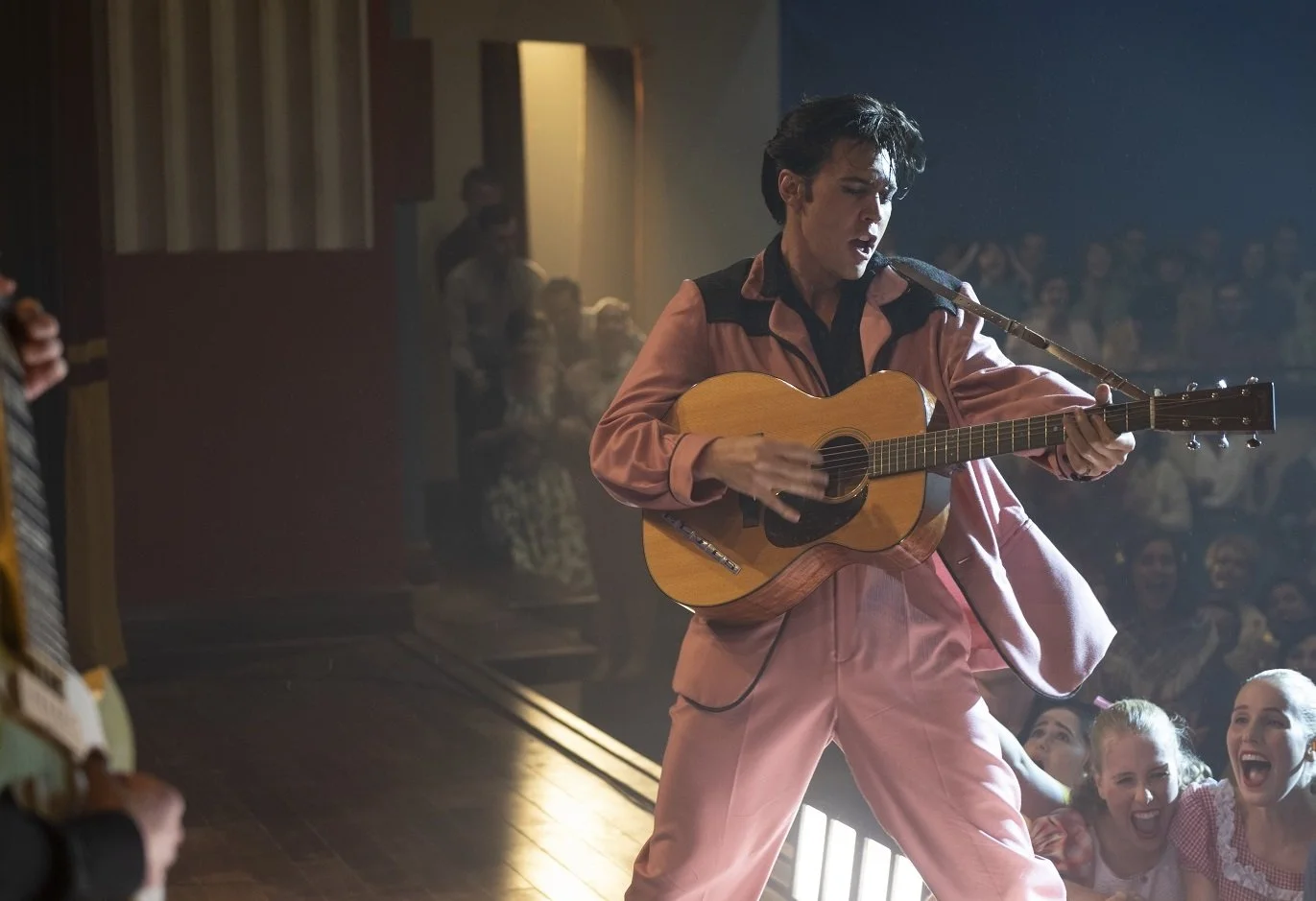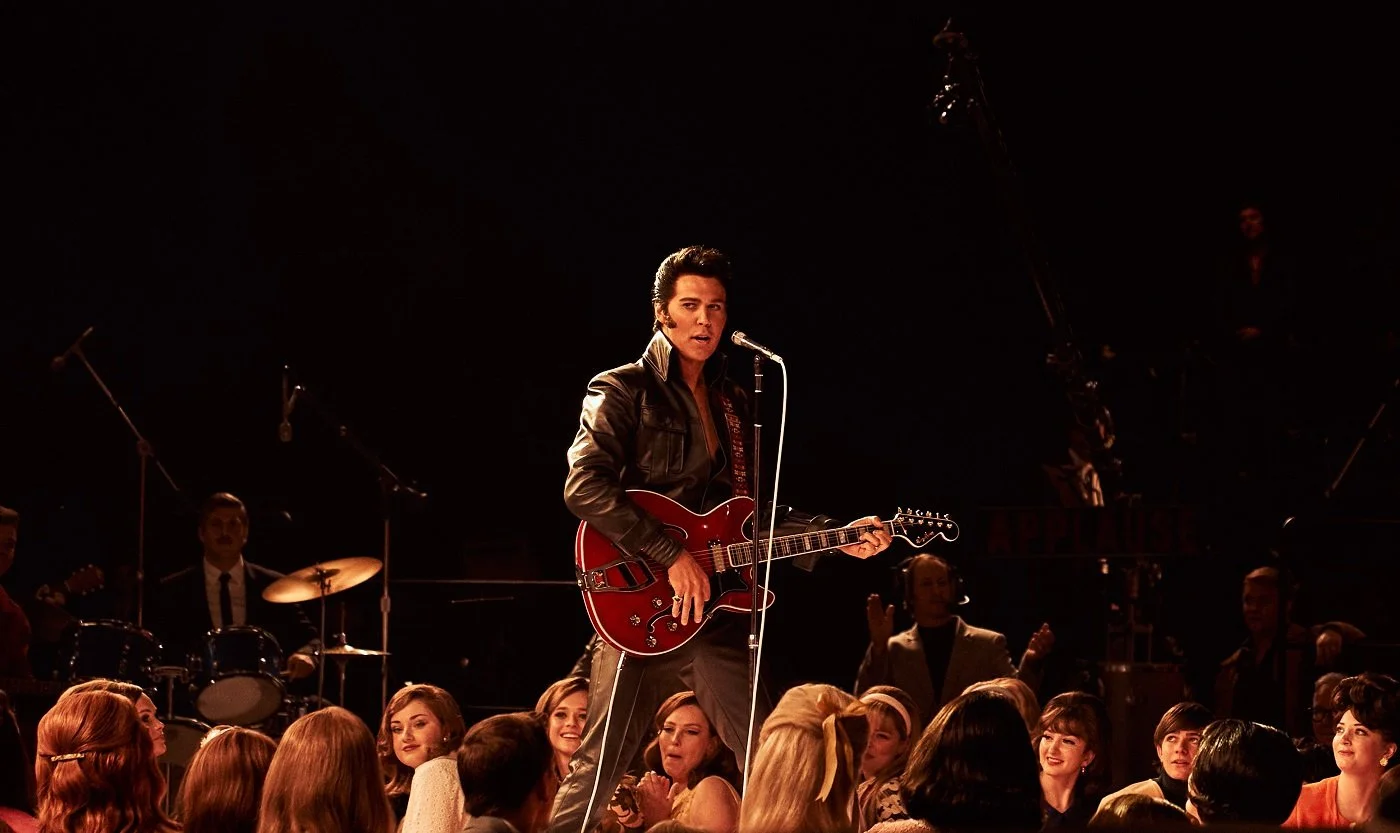IR Film Review: ELVIS [Warner Bros]
The ideal of “Elvis” is based in the context of telling a story of progress and yet depth. The reality is that Elvis Presley was a human being like all of us. Moving in with a sense of perspective, Baz Luhrmann's “Elvis” takes the approach of a man pushed by love, eventually enveloped by demons but with the relevance of a soul that changed perspectives. The tricky element here is the prism of thoughts. Presley had his failings and yet did undeniably change the face of music and its perception. The viewpoint here is that of Colonel Tom Parker (Tom Hanks) who is responsible for the man's ascent and likely his downfall (a fact that has been discussed ever since Presley died in 1977 at 42), This prism of structure actually is part of the issue of the film but also the reason is that it is able to exist. Parker is a pragmatic antagonist but only someone like Tom Hanks could pull it off because he is the marquee name that likely got the film greenlit. Austin Butler (with an array of prosthetics) pulls off a lot of The King's moves but at one point as he transitions to Vegas, some of it becomes so good that he looks exactly like Elvis from certain angles exactly and others not.
The interesting aspect to look for is if Butler actually sang at the same time and if it would be even possible with the gyrations (Elvis did it though). The credits answer this question and it seems overwhelmingly with Elvis's original voice though some of the takes are ones that were likely deep cuts from the Presley estate. The film was also endorsed by the family and the music is from there which means that the film (while it can approach certain things) moves in more of an understood, safer progression (it glosses certain situations and others not). Parker is the devil on the shoulder, with his own demons and practical approach. He cares for Elvis but also knows he is the meal ticket. When the film truly works (like Luhrmann's “Gatsby” a couple years ago) is when Luhrmann brings in the modern fusion. When Butler as Elvis escapes to Beale Street, there is that feeling in the old clubs with BB King and that is reflected in the sound, the rhythm and how it is shot.
But the heart strings are never quite pulled quite like they should (“Gatsby” did indeed have those moments). Luhrmann tries and Butler gives his all but it only makes that transition once and it is because of the irony and tragedy of it all. It is when actual footage of The King comes on when you don't know if it is not Butler as it progresses. And that image and sound is heartbreaking. Robert Downey Jr. was able at moments to make the transition in the final moments of “Chaplin” but do so in a mix of him and The Little Tramp. Hanks is good but the character itself is more a texture of The Ghost Of Christmas Future so there is a caricature element to it. Elvis' downfall in this story is a reflection of his cage at a certain point which is of course awful. The “pills” are used as the reasoning, the dissolution of his marriage and being trapped in Vegas as the consequence and perhaps final nail. Yet the film does of course show aspects of artistic triumph: the famous field concert and of course the comeback special. Butler captures some of the moves but they never quite feel dancelike. The gyrations in Vegas are more natural. And the heart of The King (which is obviously important) does come through. Again for someone like Butler to come in and do the job he did is undeniable but these are extremely hard shoes to fill. And once you see the original footage, specifically a very specific performance....considering when it was capture, it makes the cinematic balance here seem partially empty. Elvis was possessed by talent before Michael Jackson and Prince ever existed. He pushed the boundaries in a natural way while still being all himself and yet ruled in an ironic way by those around him. B
By Tim Wassberg



